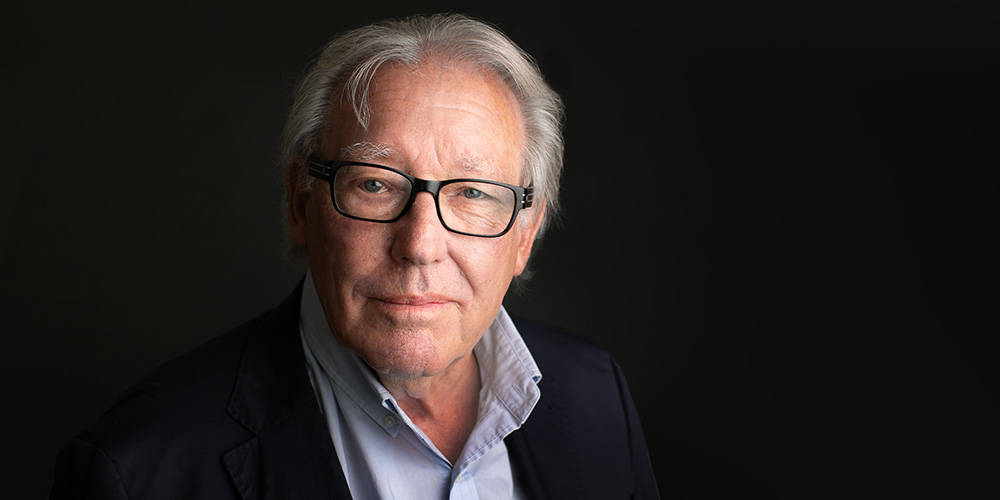"We have the here and now. That's all we really have."
Acceptance and Commitment Therapy (ACT) is still a relatively young approach from behavioral therapy, but has already proven itself in the treatment of a wide range of mental disorders. A study at the University of Basel and the University Psychiatric Clinics Basel will now examine the transdiagnostic effectiveness of ACT in greater depth. An avatar is also used to supplement the therapy. A conversation with study leader Professor Andrew Gloster.
06 July 2020
Mr. Gloster, what exactly is ACT?
ACT is a psychotherapy that helps people choose what they really care about and find a way to do it even when barriers arise. Boilded down to the basiscs, ACT helps people to accept, choose, and take action. This means: Accept, what is there or can not change; choose what is important in every moment that you have a choice, and choose that which is important to you, not to anyone else; and, finally, take action on it.
How does ACT work?
Often clients come to us and say: Please help me to not feel anxious anymore, or to not feel depressed any more, or to not crave an addictive substance any more. Implicitly, and sometimes explicitly, people feel that they need to get rid of certain thoughts and feelings in oder to find well-being and that they can only choose freely once these internal experiences are gone. ACT turns this idea on its head and says: We have a choice, here and now, even with these thoughts and feelings, because all experiences (even the painful ones) are as much part of our lives as happiness, laughter and the emotions we enjoy having. By practicing certain techniques – such as awareness and acceptance – we show clients how they can embrace difficult experiences and feelings rather than fighting with them or feeling guilty for having them and still be able to choose and act, and ultimately find well-being and inner peace.
Besides being transdiagnostic, there is empirical evidence that ACT has also been effective for so-called non-responders.
There are currently over 300 randomized trials in the world that have examined the efficacy of ACT, including our studies in collaboration with UPK Basel. What seems to be working well in ACT is that we ask people to define for us what we are going to be doing in therapy based on their values and the things they really care about. So, in a sense, we are expanding the goals of therapy beyond symptom reduction. Addressing what really matters to them deep down, and this appears to be a very powerful tool in combination with the ACT techniques that help them to be more accepting of the things that cannot be changed.
So ACT is less concerned with examing the past but more rooted in engaging with the present?
Yes, very much rooted in the present, though we do look at people’s personal learning histories, or what they experienced in the past and how this influences what they do now. People's self-concepts are often that which is in the way. For example belief systems such as "I am not competent," or "I am not loveable." In such cases, we have to work on that as well in order to create a stable self. But when we examine the impact of the past, we do it from the here and now with an eye towards understanding how it influences our current choices and actions, for that`s all we really have. We have the here and now.
In context of the study at UPK you will not only be evaluating the transdiagnostic effectiveness of ACT but also the use of an Avatar, called Anna.
The development of this Avatar is based on the idea that even in successful therapies the implementation and engagement in therapy can be tricky. You can sit there and listen to your therapist and it all makes sense. But making sense and actually doing something new are different issues. So that`s where our Avatar Anna will come in. She will basically be an adjunct and virtual coach alongside the therapist.
How exactly is this going to work?
At the clinic, Anna will be given to clients as a phone app to be used in-between sessions. She will be talking, for example, about values. What values are and how they can be a compass in life, especially when we are struggling with difficult feelings or situations. The idea is that she will help clients to connect with the things they really care about. Together with Anna, clients will be working through exercises on how to deal with the barriers that are in the way of the things that deeply matter to them. Moreover, we will be building on the information that the client shares, and then prompt them to engage in practices of the different elements of the therapy. They will get reports based on how they are doing and if they so chose, these reports can be shared with their therapists. So we hope it will also enhance the therapy.
Is this a form of personalized psychotherapy?
Yes, we are aiming for that, but we are not there yet. First, we need to set up and test enough algorithms so that it feels personalized. The idea is that in the future, Anna could be handed over to the clients once they leave the clinic and her responses could change based on, for instance, data they input. To give you an example: Say, someone agrees to have this app on their phone and they indicate they have not left their house for three days. Anna might ask: What`s going on, are you just chilling out or is something wrong?
Have you been testing ACT and Avatar-supported therapy in other contexts?
We recently concluded a study in collaboration with the University of Cyprus that assessed the efficacy of a digital avatar-led smoking cessation program for young adults. In this case, however, the therapy was fully Avatar-led and it was administered not via phones, but through computers. Users had to log-in and to work by themselves through the different sessions, where they would go over values, triggers, cognitive defusion, mindfulness and also be dealing with acceptance – so basically all the components of ACT were applied in relation to what we know works for smoking cessation. At the end of the program we assessed these young smokers again to see if it made any difference in their smoking. It significacly reduced smoking and led to significant quit rates. Interestingly, at no point in the program did we tell people specifically to quit smoking. Rather, the focus was on talking about values, about defining what is important to them. Only indirectly did we encourage them to make a quit attempt. Most importantly, these treatment gains were maintained through the 6-month follow-up.
ACT sounds really useful. Couldn't we all use a little bit of ACT?
ACT is a theory of human behavior and interaction and what's going on in every moment, so by default it is relevant to most things that we humans face every day. I also use it on myelf, for I am not immune to disruptive thoughts. I ask myself regularly: What is important to me. My answers don't change so much. My job is very important to me. My students are important to me. My children, my wife, my health. These are the areas, but some times I learn new ways of engaging with them. And some times I fall short, and then it is about understanding, how to re-engage and get back to doing what's important. It's a natural human process. I can hold my thoughts a bit more lightly, I engage in mindfulness and it helps ground me so that I am more flexible. And that `s what we are always looking for – being able to do things we care about with more confidence.
Original sources
Maria Karekla, Stella Nicoleta Savvides, Andrew T. Gloster
An Avatar-Led Intervention Promotes Smoking Cessation in Young Adults: A Pilot Randomized Clinical Trial
Annals of Behavioral Medicine (2020), doi: 10.1093/abm/kaaa013
Andrew T. Gloster, Marcia T.B. Rinner, Myria Ioannou, Jeanette Villanueva, Victoria J. Block, Giovanna Ferrari, Charles Benoy, Klaus Bader, Maria Karekla
Treating treatment non-responders: A meta-analysis of randomized controlled psychotherapy trials
Clinical Psychology Review (2020), doi: 10.1016/j.cpr.2019.101810
Further information
Prof. Dr. Andrew Gloster, University of Basel, Faculty of Psychology, phone +41 61 207 02 75, email: andrew.gloster@unibas.ch



